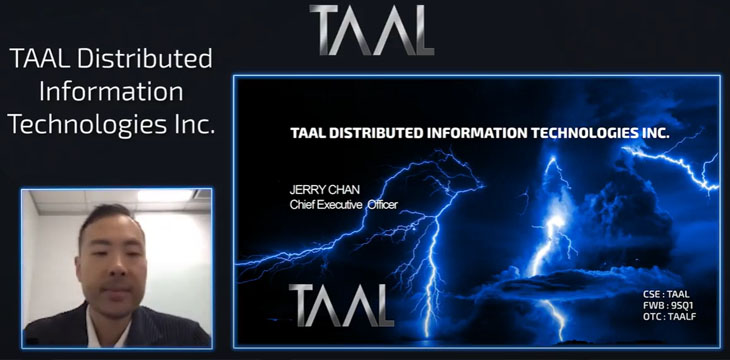
Jerry Chan, CEO of TAAL Distributed Information Technologies Inc (CSE:TAAL | FWB:9SQ1 | OTCQX: TAALF), participated at the recently held virtual Baikal Blockchain & Crypto Summit 2020, where he explained TAAL’s business model and took a deep dive into the future of the transaction processing economy.
The road to sustainable mining
“Miners have been chasing block subsidies to make rewards to pay for their capital investment,” said Chan. “[But] this is a short term business model, putting capital up in hopes that the asset you are digging up appreciates in value. If it doesn’t, then you would have wasted a lot of capital and time.”
This is currently what a majority of digital currency miners are doing. They mine because they anticipate the price of the coin or token that they mine increasing. However, if the price of the coin or token significantly decreases—which is very possible in the volatile world of digital currency—or the mining hardware that they use becomes inefficient or unable to compete with the latest mining hardware being released, then the digital currency miner is not going to be cash-flow positive and will practically be forced to shut down their mining operation.
“We see that this is not a long term sustainable business model,” said Chan, “there is no guarantee that price rises, and if you remove all the speculative and gambling uses in the market, most coins and tokens have very little utility.”
When TAAL realized that this mining model was not sustainable, they changed their blueprint so that it did not need to rely on asset price appreciation.
“We created a business model not based on asset price appreciation,” said Chan, “but the increase of transaction volume, and therefore, the increase in transaction fees that come with that increase in transaction volume.”
“We see that as the sustainable business model for blockchain infrastructure service providers of the future,” he added, telling the audience that the transaction processing industry is projected to be worth $2.7 trillion by 2023.
To make the most of the only sustainable transaction processing model of the future, you need a blockchain that can handle a large transaction volume with high transaction throughput, and we finally have that in Bitcoin (BSV).
“We finally have Bitcoin which is unbounded in scaling. I like to think of it now that we have the unique opportunity of being back in 2013, when Bitcoin could do everything. It’s just that not a lot of people have realized it yet. And that Bitcoin that is capable of scaling at a global level is Bitcoin SV because it is the original protocol without any limits as intended,” Chan said.

 09-21-2024
09-21-2024


